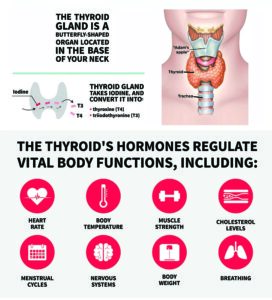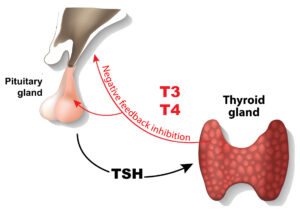Your thyroid gland plays an important role in your overall health. It helps regulate your metabolism, energy levels, mood, weight, and more. Many people are unaware of what the thyroid gland actually does and why it’s so vital to good health. In this blog post, we will take a deeper look at the thyroid gland and how it functions in the body.

What is the thyroid gland
The thyroid is a small, butterfly-shaped gland located in the lower front of your neck. It may be small, but it plays an important role in many bodily functions.
What does the thyroid do?
The thyroid is part of the endocrine system which is responsible for producing hormones that help regulate many functions of the body including metabolism, growth and development, heart rate, blood pressure, body temperature and more.
The hormones produced by the thyroid gland play a key role in regulating your metabolism which affects everything from your energy levels to weight gain or loss to how quickly you process food to how quickly you burn calories. The hormones also help regulate other bodily functions such as heart rate and body temperature as well as mood regulation.
The hormones produced by the thyroid gland are called thyroxine (T4) and triiodothyronine (T3). Low levels of thyroid hormone (known as hypothyroidism) can cause fatigue, depression, weight gain, hair loss, and many other symptoms. Conversely, too much of these hormones (known as hyperthyroidism) can lead to anxiety, insomnia, tremors, and other issues.
How is the thyroid gland regulated?

The pituitary gland located at the base of your brain produces a hormone called thyrotropin-releasing hormone (TRH) which triggers another hormone called thyrotropin or TSH which then helps regulate production of T3 and T4 within the bloodstream, as shown in the diagram to the left. If there is an imbalance between these hormones a doctor may prescribe medications to help restore balance.